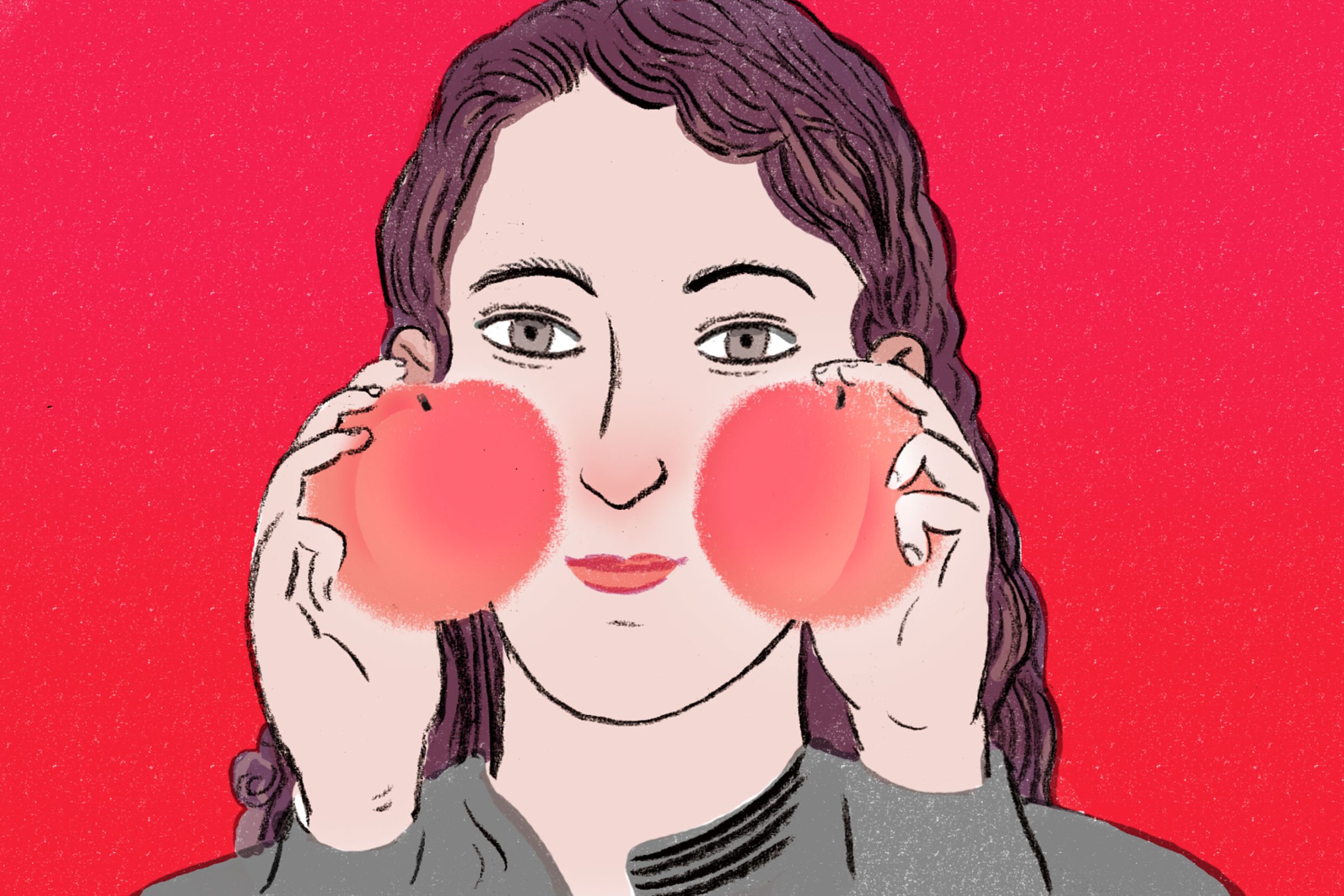
Human beings are the only animals that blush. And try as we might, there’s no simple way to suppress it. In fact, trying to hold back a blush is a pretty good way to intensify it, says Dr. Corine Dijk, a clinical psychologist at the University of Amsterdam.
When you feel self-aware or embarrassed, your nervous system sends a signal to muscles in your face instructing them to relax, Dijk says. That relaxing allows small veins in your skin to dilate, which in turn causes blood to pool and your cheeks to redden. (Dijk says blushing shouldn’t be confused with the “flushing” some people experience when angry, which results from a different physiological mechanism.)
If you’re fair skinned, your blush will be more visible than if you had darker skin, says Dr. Peter Drummond, a social scientist and blush researcher at Australia’s Murdoch University. Some hormonal or anatomical quirks—stuff that’s just part of your unique internal architecture and chemistry—could also make you more or less likely to blush, he adds.
You Asked: Your Top 10 Health Questions Answered










But social discomfort really brings on the blushing. Times of embarrassment, guilt or self-consciousness—or some combination of all three—are when your cheeks produce their mortifying rosettes. So if you’re the type who’s quick to feel embarrassed or self-conscious, you’re probably the type who blushes a lot, says Dr. Marije aan het Rot, a behavioral scientist at the University of Groningen in the Netherlands.
Research suggests certain situations are likely to amp up those blush-inducing emotions, aan het Rot says. If you feel inferior to the people around you—either socially or professionally—you may be quick to feel self-conscious (and quick to blush.) People with social phobias often blush at higher rates than those more comfortable in public, aan het Rot adds. Like so many confounding psychological conditions, fearing a thing—in this case, a blush—makes the thing more likely to happen.
Research also suggests being the subject of scrutiny, even if you have no reason to feel ashamed or embarrassed, is enough to launch a rosy reaction. Prolonged eye contact alone can be a blush trigger, Drummond’s experiments have shown.
On the other hand, feeling unconcerned or uninterested in what other people think of you tends to lower the likelihood you’ll blush, Dijk says. While tough to study, it’s possible that by raising your own social or professional status—or by strengthening your disregard for what others think of you—you may blush less often.
However interesting (or discouraging) all of this may be, none of it explains why people turn red when shamed or embarrassed. What utility does your blush serve, and why did we develop the ability to blush in the first place?
There are theories, but not answers. It’s possible that, like a built-in polygraph, your blush is an involuntary admission of wrongdoing. “When you blush, others know that your emotional experience is true and sincere,” Dijk says. That may sound unappealing, but it has its benefits. “When people blush in an embarrassing or shameful situation, they are more likely to be seen by others as likable and trustworthy than if they had not blushed,” aan het Rot says.
In this way, blushing may have developed as a way for humans to better communicate sincere regret or contrition. It’s also possible your blush is just a byproduct of your body’s attempts to cool your brain when blood rushes to your head in embarrassing situations.
What isn’t in doubt is that pretty much everyone views their own blushing as an undesirable habit—though maybe we shouldn’t. Blushers are, in many situations, viewed “favorably,” aan het Rot says.
Keep that in mind, and you may just blush less as a result.
More Must-Reads from TIME
- Why Biden Dropped Out
- Ukraine’s Plan to Survive Trump
- The Rise of a New Kind of Parenting Guru
- The Chaos and Commotion of the RNC in Photos
- Why We All Have a Stake in Twisters’ Success
- 8 Eating Habits That Actually Improve Your Sleep
- Welcome to the Noah Lyles Olympics
- Get Our Paris Olympics Newsletter in Your Inbox
Contact us at letters@time.com